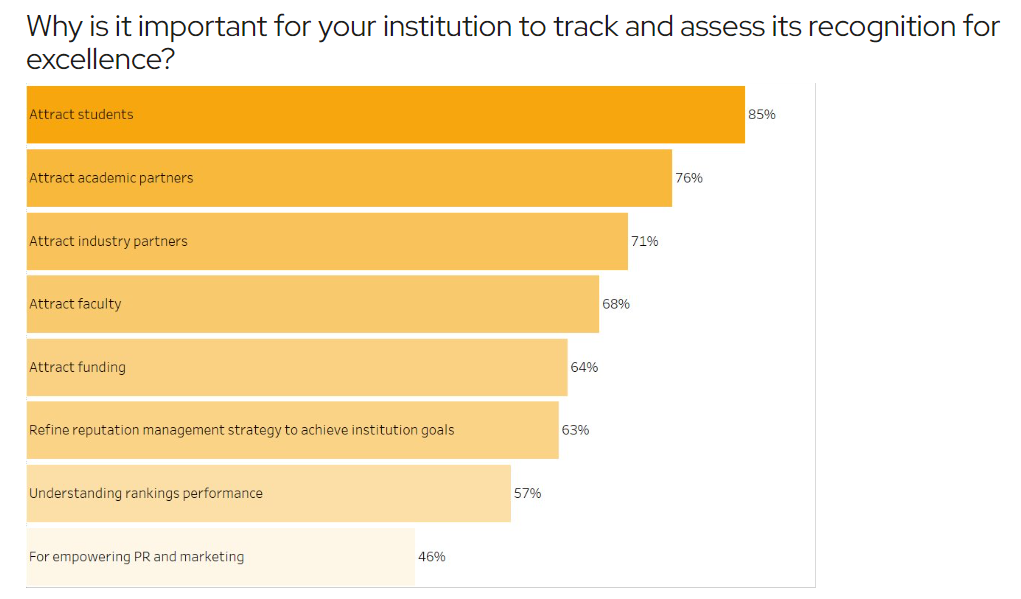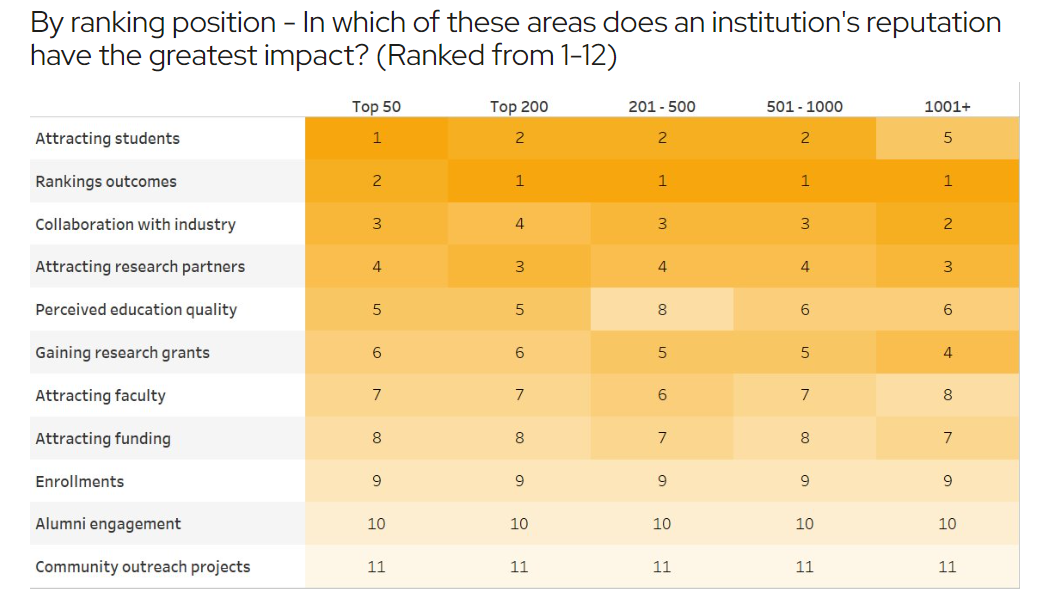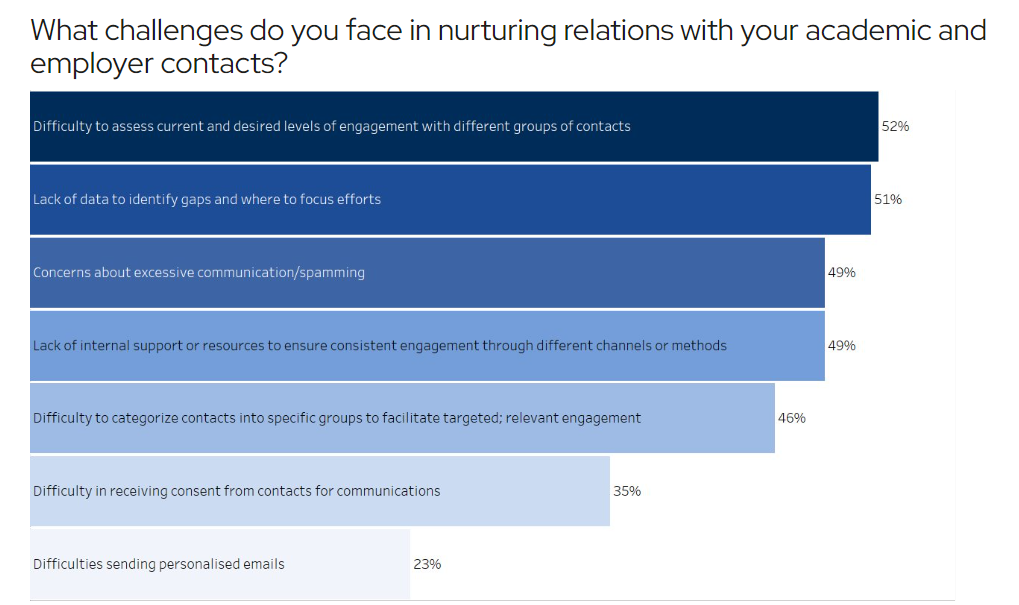
A university’s reputation can be tough to measure and understand. In our ever more connected world, people’s perceptions of your institution can be affected by a plethora of factors and touchpoints.
But this challenge shouldn’t put institutions off from trying to understand and improve their reputation. Establishing a strong reputation for your institution is essential to engaging your key stakeholders, prospective students, staff, and partners.
What is reputation?
Reputation is the opinion people have about a university. Having a good reputation is indicative of how stakeholders view an institution’s capabilities as an educator and partner. From student and faculty recruitment to research funding and global partnerships, reputation has the power to make or break an institution’s progress. Stakeholders can be students, institutions and their academics, industry partners, potential faculty or investors.
Why is reputation important to institutions?
To find out why institutions think reputation is important and how they’re currently approaching reputation management, we surveyed individuals from 471 higher education institutions from around the world, including 18 in the QS World University Rankings 2024 top 50, and a further 51 in the top 200.

It’s clear institutions think reputation has a real impact on attracting key stakeholders. A good reputation strategy should be considered an enabler for achieving a host of institutional goals, but only 63% view tracking and assessing reputational performance as important to strategic development.

For most universities, regardless of their QS World University Rankings position, reputation is seen as most important for attracting students or improving ranking performance.
Reputation is also clearly a tool for universities to leverage their collaboration with industry, highlighting the impact a strong reputation can have and the potential long-term strategic benefits. Attracting a new industry partner could, in turn, improve research impact and graduate outcomes.
Reputation is interconnected with almost every measure of institutional success – improving one aspect will likely have a positive impact on another.
Advantages of building reputation among academics and employers
The key to building a positive reputation is engaging and developing relationships with academics and industry. Why is it important to work with these stakeholders? A positive reputation enables you to:
Academics
- Build the diversity and quality of potential research collaborators
- Facilitate faculty exchanges with institutions with shared goals
- Improve the reach and impact of your research
- Attract greater numbers of high-quality students
Employers
- Improve graduate outcomes
- Generate an influential alumni network of successful graduates
How does this benefit institutions?
- Better understand what employers are looking for and reduce the skills gap
- Grow awareness of your areas of excellence to recruit high-quality faculty and students.
- Increase your potential for new partnerships with industry and institutions
- Academic and employer reputation contributes to 45% of an institution’s QS World University Ranking score
Challenges universities face regarding their reputation
While institutions know reputation has an impact, respondents don’t think institutions are successfully managing and nurturing employer and academic networks or contacts.
How effectively does your institution manage its recognition for excellence from academic partners?
| QS World University Rankings 2024 position | Percentage of institutions who said they managed recognition effectively or absolutely effectively |
| Top 50 | 47% |
| 51 – 200 | 41% |
| 201 – 500 | 34% |
| 501 – 1000 | 50% |
| 1000+ | 38% |
| N/A | 40% |
How effectively does your institution manage its recognition for excellence from employer partners?
| QS World University Rankings 2024 position | Percentage of institutions who said they managed recognition effectively or absolutely effectively |
| Top 50 | 47% |
| 51 – 200 | 44% |
| 201 – 500 | 41% |
| 501 – 1000 | 54% |
| 1000+ | 42% |
| N/A | 42% |
What is preventing institutions from building their relationships with academics and employers?
The data shows challenges vary by institution, regardless of rank. According to our survey, when collecting and managing academic and employer contacts, 79% of respondents said the lack of a central contact management system was a challenge. 74% said dispersed data owned by different departments posed difficulties – among universities ranked between 51 and 200, this percentage rose to 86%.
We also gathered data about the challenges institutions face when nurturing relations with academic and employer contacts.

Key takeaways
The data indicates that institutions aren’t confident in capturing and managing academic and employer contacts and are unsure how often their contacts should be engaged with. This challenges their ability to create academic partnerships, which we’ve identified is important to institutions regardless of rank.
These issues, alongside scattered datasets and uncoordinated communications are solvable. A central system designed to manage reputation contacts should be considered.